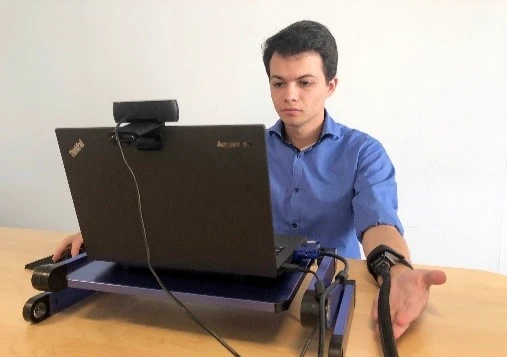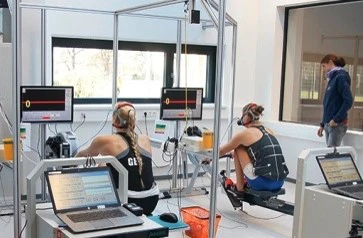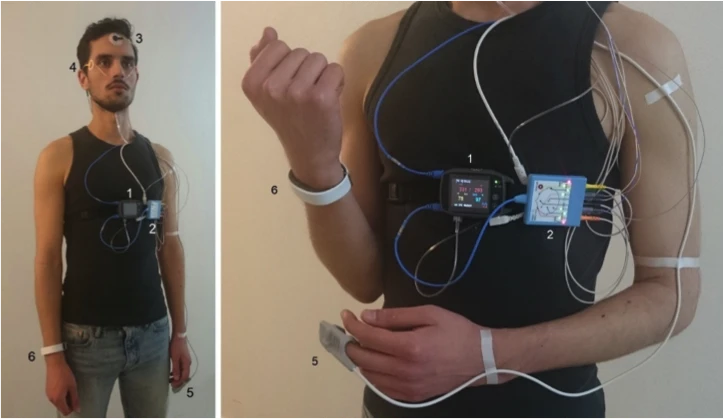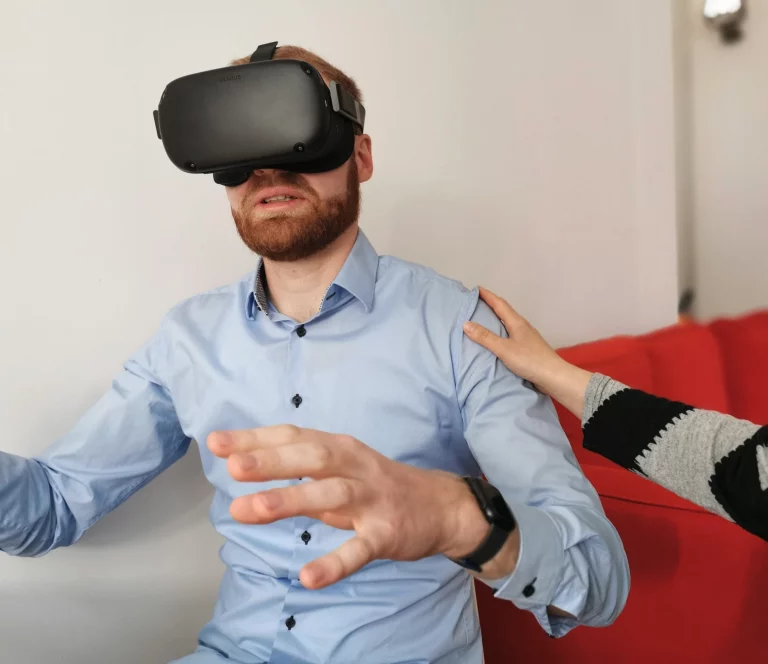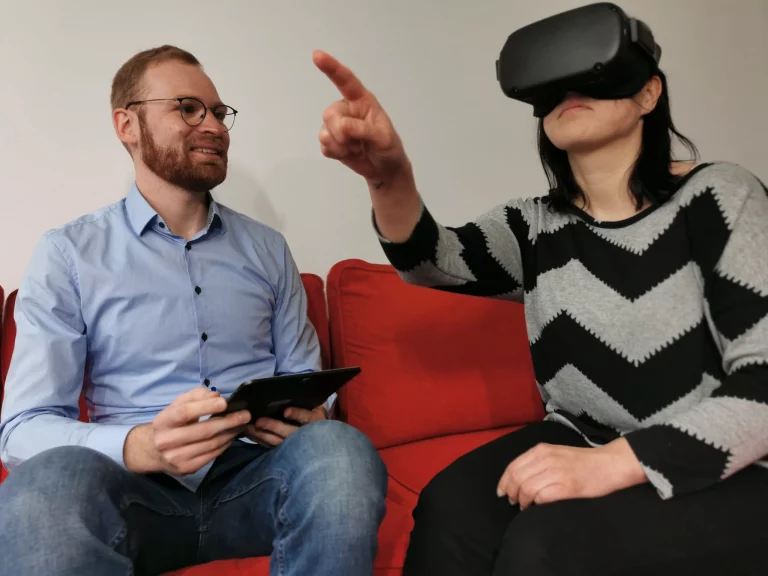
Virtual Reality-Supported Digital Depression Therapy
The digitalization of healthcare opens up new opportunities for psychotherapy
BMBF funded Project ReliVR


Project Justification
Virtual Reality (VR) is increasingly recognized for its potential in transforming mental disorder treatment, offering advantages such as cost-effectiveness, time efficiency, accessibility, reduced stigma, and scalability. While the application of VR in the context of anxiety disorders has been extensively evaluated and demonstrated to be effective, the utilization of VR as a therapeutic treatment for depression remains under-investigated. Our goal is to pioneer immersive VR therapy modules for treating major depression, alongside a web-based system for home use. By developing a modular digital therapy platform grounded in psychodynamic therapy interventions, stress reduction, exploration of social situations and relationship support, social skill training, avoidance behavior analysis, and psychoeducation are addressed. The use of immersive VR facilitates patient immersion into complex and realistic interpersonal interactions with high emotional engagement, contributing to a profound therapeutic experience.



Our Approach
IXP developed an automated depression monitoring system, based on acoustic voice analysis, which is implemented in the form of a speech-based diary to track the affective state of the user and depression severity.

Work Packages, Insights and Outcomes
Within the research project, IXP is primarily responsible for medical technology requirements management to identify the usage context for medical needs analysis. In addition, the main aim of IXP is to develop a voice-based depression monitoring system that includes machine learning to determine recurrence risk. Besides that, a deep learning algorithm is employed to monitor emotions.
Besides that, IXP supports the technical development process and study design, and handles market intelligence within the project, including project marketing and effective public relations. In addition, IXP implements reimbursement scenarios, including refinancing strategies and evaluation of selective payer contracts, as well as market intelligence, business model development, sales organization, international marketing and social media communication strategies.
Successful Projects
Development of a screening and support portal as an extensive psycho-social diagnostic mode for refugees
Features extraction of auditory, visual, and physiological data for diagnosis system of affective disorders
A holistic view of interrelated frailties to reduce frailty risk by improving overall well-being
Feedback-assisted rehabilitation after surgery of the anterior cruciate ligament
A contribution of German elite sport to smart health promotion
Market overview, legal and technical requirement analysis, living lab study, and implementation of corporate health management programs
Desktop and virtual reality-supported module variants to bridge waiting times between therapy sessions and enrich ambulant therapy
Support of acute therapy and relapse prevention in the deep psychological treatment





